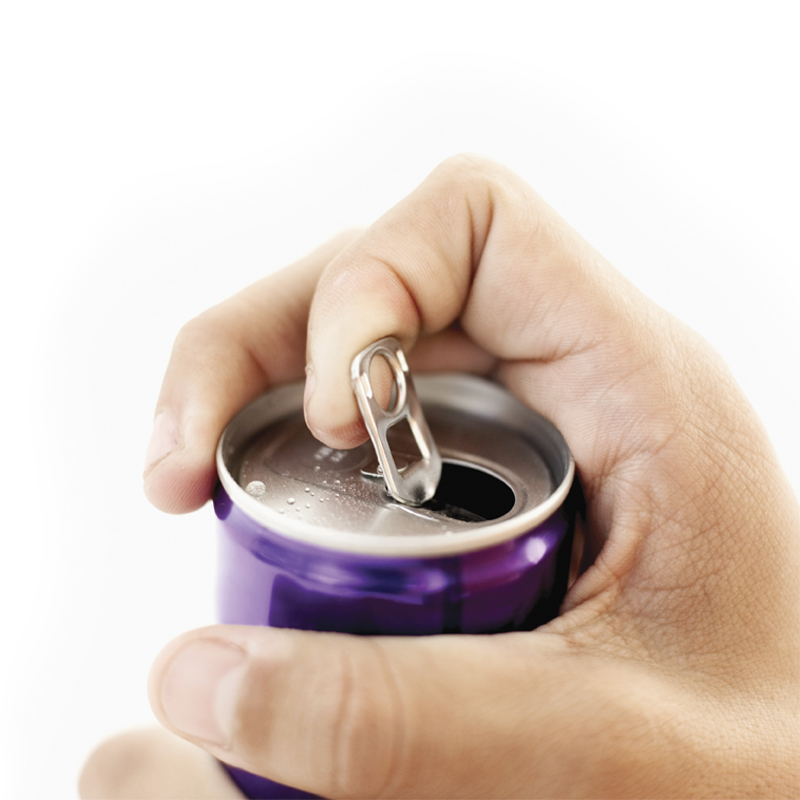Written by Blair Koster
The Pick-Me-Up That Can Put You Down
With today’s fast-paced society and many demands, more people are reaching for energy drinks. From working moms to athletes to scores of young people, the marketing of brands like Red Bull, Monster Energy and 5-hour Energy reins them in.
Picking up an energy drink seems like a quick way to get a boost, and with words like “rich in antioxidants” and “organic sustained energy,” the drinks can seem almost healthy. Lynn Hull, who holds a Ph.D. in Pharmacology and Toxicology from Virginia Commonwealth University and is a postdoctoral fellow in the Institute for Drug and Alcohol Studies at VCU, weighs in on this trend and explains what consumers need to know.
Hull says the first thing that consumers should be aware of is that energy drinks are not regulated by the Food and Drug Administration, like sodas and juice. The manufacturers label the drinks “dietary supplements,” which means they do not have to follow FDA regulations. In addition to making unproven claims about mental clarity and performance, the manufacturers can insert many untested ingredients, such as the organic acid taurine and yerba mate extract. And energy drinks can contain caffeine from more than one source, Hull noted, but may not include that information in their ingredient list.
A study by the Research Institute on Addictions published in 2008 in the Journal of Adolescent Health found people who consume energy drinks like ROCKSTAR and Monster Energy are often risk-takers, with college students who consume energy drinks being linked to dangerous sexual behavior and substance use. On a wider public level, Hull says consumers tend to misuse the drinks by mixing them with alcohol or drinking too many at one time. “When people mix the drinks with alcohol, they become wide-awake drunk, which means that they can drink longer and feel less drunk. They are still just as intoxicated, but don’t know it, and they may get in a car and drive. People may also get into risky sexual situations.”
Caffeine can also have negative medical effects. Caffeine is metabolized by the liver, which can make any drugs that people are taking last longer. Hull says the drinks can contain too much caffeine for people with heart problems, and can also cause anxiety and insomnia. People sometimes don’t link the energy drinks they consume during the day with sleeplessness later that night, she says.
Researchers from the University of Texas Health Science Center at Houston and the University of Queensland in Australia examined energy drinks and noted the high levels of caffeine when they presented their research to the Mayo Clinic in November 2010. They warned that certain susceptible people risk “dangerous, even life-threatening, effects on blood pressure, heart rate and brain function,” and that “some of the laxest requirements [regarding energy drinks] exist in the U.S.,” in contrast with Norway, Denmark and France, which have banned the sale of popular energy drink Red Bull.
Nationally, emergency room visits associated with energy drinks increased more than tenfold from 1,128 in 2005 to 13,114 in 2009, according to a report released in November 2011 by the U.S. Substance Abuse and Mental Health Services Administration. Although 44 percent involved combinations with other substances such as alcohol, more than half of the visits didn’t involve another substance. Since 1991, there have been four documented cases of caffeine-associated death—three in Sweden and one in Ireland—as well as five separate cases of seizures associated with consumption of energy/power drinks, according to the Mayo Clinic.
As Hull concludes, there are many things that researchers still do not know about the ingredients in energy drinks or their long-term effects. “Be aware,” she says, “and if you are consuming these drinks, regulate your overall caffeine intake.”



